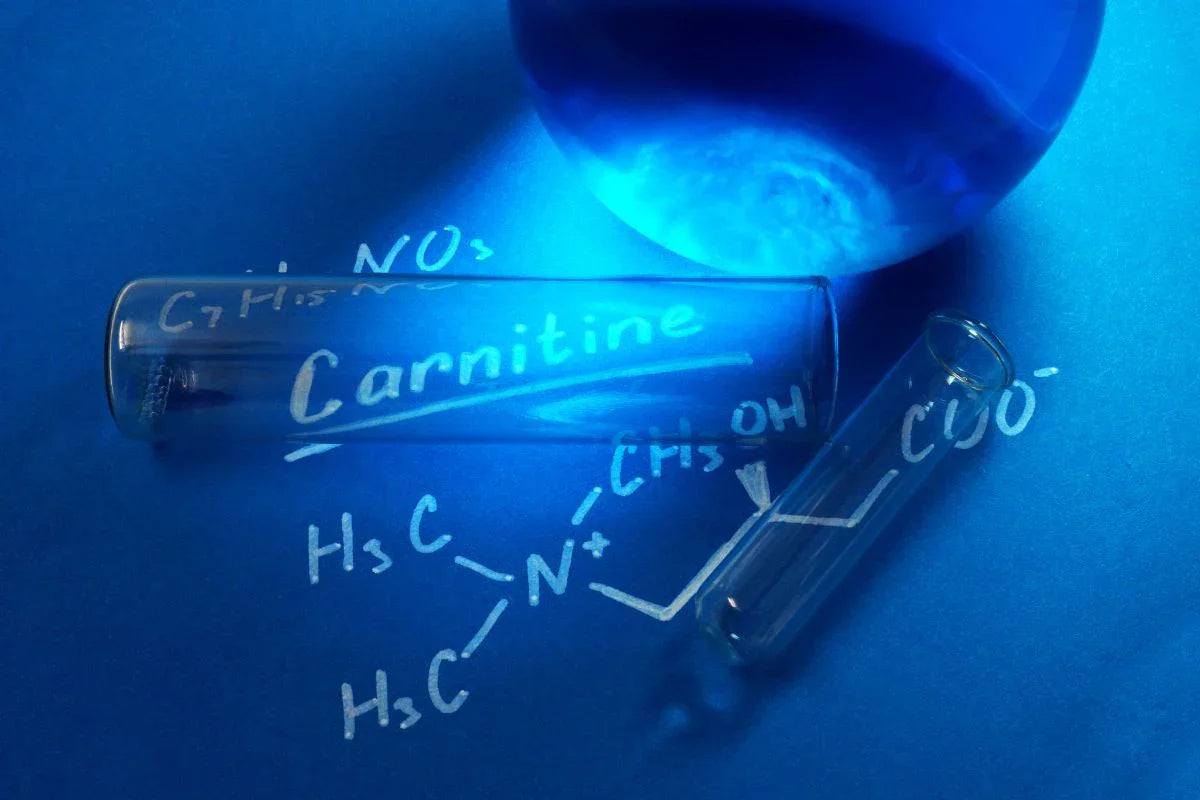
Which form of carnitine is right for you?
Our cells contain several mechanisms responsible for energy production. Insights from recent years reveal that influencing just one of these mechanisms can affect the functioning of the entire cell. The most powerful mechanisms are targeted at the mitochondria – the cell’s power plants. The amino acid carnitine directly impacts them as a facilitator of energy transport in mitochondria. There are different forms of carnitine, each with unique properties and areas of action. Acetyl L-Carnitine, L-Carnitine Fumarate, Propionyl-L-Carnitine, and L-Carnitine Tartrate are available in capsules or tablets. Below you’ll find the most commonly used L-Carnitine variants.
L-Carnitine as an endogenous substance
Of all the different forms, L-Carnitine is considered the basic form. L-Carnitine is an endogenous substance involved in energy metabolism. The body can synthesize this molecule from the amino acids lysine and methionine. We also obtain L-Carnitine daily through food.
As a biologically active form, L-Carnitine plays an essential role in burning fatty acids for energy. It is the only substance capable of transporting long-chain fatty acids deep into the mitochondria, where they are burned (beta-oxidation). Athletes, bodybuilders, and people with increased energy needs often use this amino acid. Because L-Carnitine is found almost exclusively in animal products, vegetarians and vegans may also benefit from supplementation.
D-Carnitine may counteract
D-Carnitine is the stereoisomer of L-Carnitine but is rarely found in supplements. D-Carnitine is not biologically active and may interfere with L-Carnitine, potentially leading to a deficiency.
The neurological version: Acetyl-L-Carnitine
Acetyl-L-Carnitine (ALCAR) is L-Carnitine bound to an acetyl group. This form is also known as the neurological version of L-Carnitine because it can cross the blood-brain barrier. This allows for greater interaction with the central nervous system. These properties are unique and cannot be attributed to other forms of carnitine.
The acetyl group not only ensures that Acetyl-L-Carnitine is active in the brain and nerves, but it is also an important substrate in the production of the neurotransmitter acetylcholine and acetyl-Coenzyme A. The latter is the most important intermediate in energy production from amino acids, fatty acids, and sugars. If you are looking for a supplement that supports both body and mind, this form is suitable.
Propionyl-L-Carnitine and nitrogen
Propionyl-L-Carnitine (PLC) or Glycine Propionyl-L-Carnitine (GPLC) is bound to the amino acid glycine and esterified with a short-chain fatty acid. In the mitochondria it is converted into L-Carnitine and Propionyl Coenzyme A. This combination provides intermediate molecules used in energy production (citric acid cycle). This creates a synergistic effect.
Propionyl-L-Carnitine acts more specifically on blood circulation and its regulation than other forms of Carnitine because it influences nitric oxide production. It also interacts strongly with testosterone.
In time-sensitive situations: L-Carnitine L-Tartrate
L-Carnitine L-Tartrate (LCLT) is bound to tartaric acid and is absorbed faster than other variants. This rapid absorption makes it particularly suitable for time-sensitive situations such as right before or after exercise, which is why it is mainly used by athletes. L-Carnitine L-Tartrate also interacts with hormones such as testosterone by modulating the availability of the androgen receptor.
L-Carnitine Fumarate for fewer kilos
L-Carnitine Fumarate is bound to fumaric acid. This patented form is marketed under the brand Carnishield™ as a Carnitine variant for the cardiovascular system.
Fumarate is a naturally occurring substance in the body as an intermediate in the citric acid cycle, where energy (ATP) is produced. Similar to vitamin D3, fumaric acid is produced in the skin under direct sunlight. Together with the L-Carnitine component, this creates a synergism with fumaric acid. This form is widely used as an energy booster and as support for weight management.
How much do I need?
Depending on the form, the dosage may vary. For L-Carnitine this is 1–4 grams per day, while for Acetyl-L-Carnitine it is typically 1–3 grams per day. Always read the instructions carefully and follow the dosage indicated on the label. Doctors, therapists, and other health professionals may recommend a different dosage. Always consult your physician before starting L-Carnitine supplements, especially if you are taking medication.


